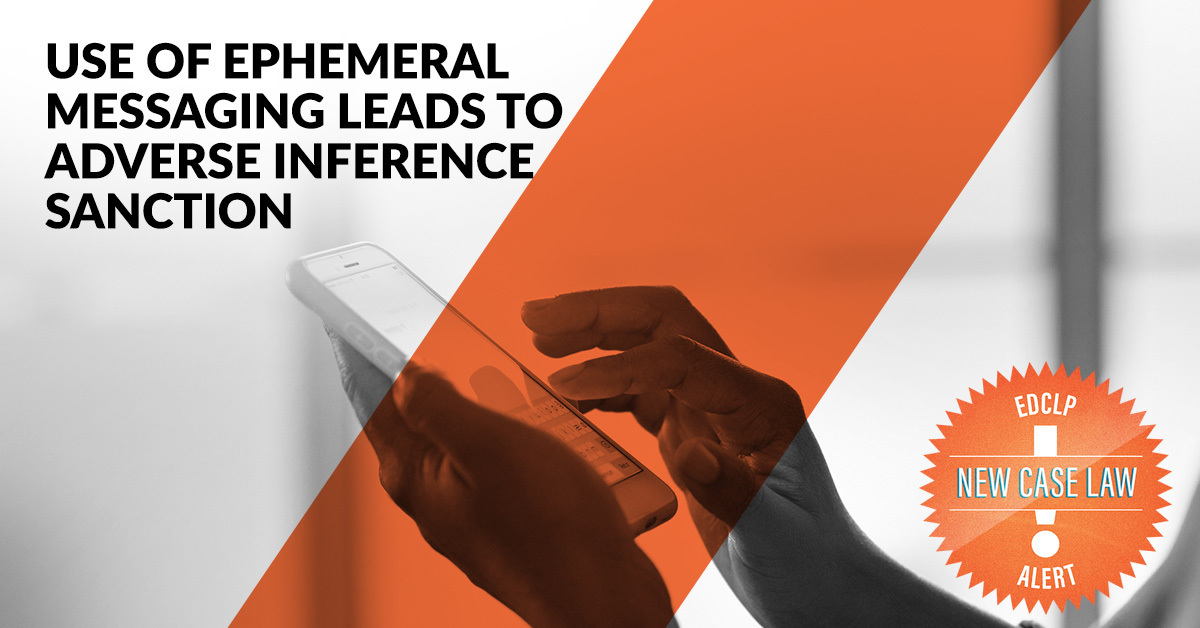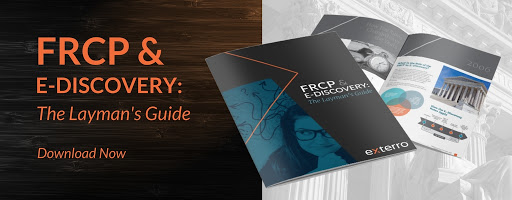E-Discovery
Case Law Alert: Use of Ephemeral Messaging Leads to Adverse Inference Sanction
March 11, 2022

The BYOD (bring your own device) revolution provided just a glimpse into the data preservation nightmares that are unfolding today. With the increased use of ephemeral apps, legal teams must have clear policies for when their clients may use these technologies or else risk sanctions, as in FTC v. Noland.
Overview
In this case, the plaintiff motioned for spoilation sanctions against the defendants based on the defendants’ intentional use of messaging and email apps to hide evidence from the plaintiff, resulting in the spoliation of evidence.
This case arose out of a government investigation which the defendants were inadvertently made aware of an impending subpoena. Armed with this unintentional advance warning, the defendants began communicating via a messaging app, Signal, which is used to ensure user privacy, and in this case, to prevent the plaintiff from discovering communications between the defendants. The defendants intentionally turned on the auto-delete function to ensure their communications could not be recovered.
The plaintiff told the defendants to suspend any destruction of documents. When an action was initiated against the defendants, they failed to disclose their use of the Signal messaging app and deleted it from their phones before producing them to the plaintiff.
When the plaintiff discovered the defendants’ use of the messaging app, the defendant’s either did not acknowledge the request or said the communications were no longer available.
Ruling
- Adverse Inference Sanction Granted. Based on the defendants switching their communications to Signal and using the auto-delete function, which led to the loss of relevant communications to the case, the court issued a “general adverse inference” against specific defendants.
- Duty to Preserve. The court specifically noted that the plaintiff asked the defendants to suspend any deletion of relevant data and the defendants intentionally disobeyed. This violated their preservation duty.
- Intent to Deprive. The defendants demonstrated their intent to deprive the collection of their communications by their timing of installing and using Signal and the coordinated removal of the app after producing their phones to the plaintiff.

Expert Analysis from Hon. Andrew Peck (Ret.), Senior Counsel, DLA Piper
Substantively, as entities use newer communication tools, including Slack, they likely will have to be searched for responsive information. The issue then turns to whether the cost and burden of the search exceed the likely relevance of the information. Procedurally, the parties need to present facts (metrics) to the court, not just boilerplate claims that “it’s hard” or burdensome or expensive. When one side presents such information and the other side presents nothing, it’s easy to see how the court will rule.
Case Law Tip
Case Law Tip: Have questions on how the FRCP applies to e-discovery? Download this FRCP E-Discovery Quick Guide to get all your questions answered.
